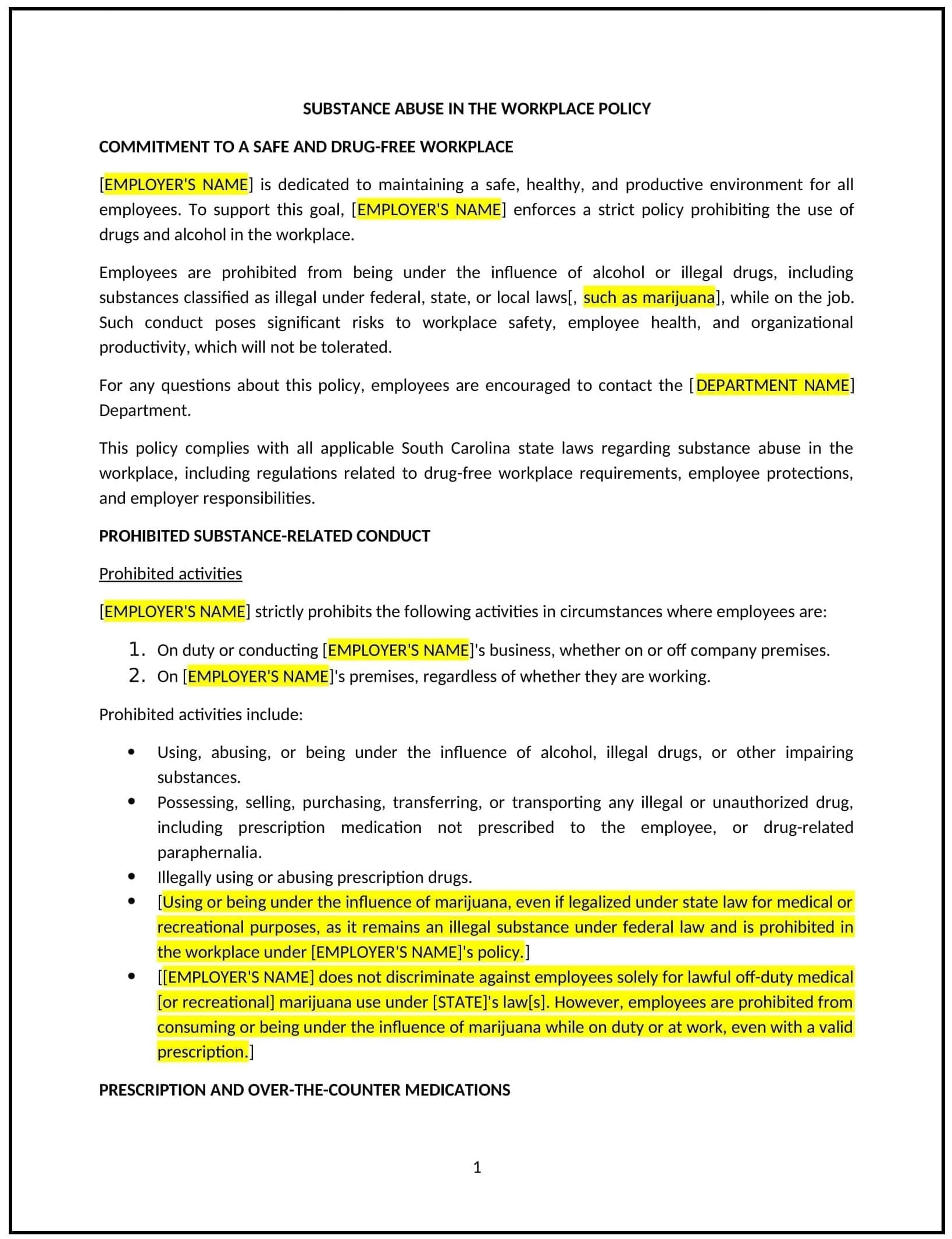Substance abuse in the workplace policy (South Carolina): Free template
Got contracts to review? While you're here for policies, let Cobrief make contract review effortless—start your free review now.

Customize this template for free
Substance abuse in the workplace policy (South Carolina)
This substance abuse in the workplace policy is designed to help South Carolina businesses establish guidelines for addressing alcohol and drug use among employees. It outlines procedures for identifying substance abuse, providing support, and maintaining a safe and productive work environment.
By adopting this policy, businesses can promote employee health, reduce workplace risks, and align with general best practices for managing substance abuse issues.
How to use this substance abuse in the workplace policy (South Carolina)
- Define substance abuse: Explain what constitutes substance abuse, including the misuse of alcohol, illegal drugs, or prescription medications.
- Establish prohibited conduct: Specify that substance abuse is not tolerated in the workplace, including being under the influence during work hours.
- Address testing procedures: Outline when and how drug or alcohol testing may be conducted, such as pre-employment, random, or post-accident testing.
- Provide support resources: Offer assistance programs, such as counseling or rehabilitation services, to help employees struggling with substance abuse.
- Train managers: Educate supervisors on identifying signs of substance abuse and handling related issues professionally.
- Review and update: Assess the policy annually to ensure it aligns with evolving business needs and workplace standards.
Benefits of using this substance abuse in the workplace policy (South Carolina)
This policy offers several advantages for South Carolina businesses:
- Promotes employee health: Provides resources and support to help employees overcome substance abuse issues.
- Reduces workplace risks: Minimizes the potential for accidents, injuries, or impaired performance due to substance abuse.
- Aligns with best practices: Offers a structured approach to managing substance abuse in the workplace.
- Builds trust: Demonstrates a commitment to employee well-being and workplace safety.
- Enhances productivity: Ensures employees are fit for duty and able to perform their job responsibilities effectively.
Tips for using this substance abuse in the workplace policy (South Carolina)
- Communicate the policy: Share the policy with employees and include it in the employee handbook.
- Provide training: Educate managers on identifying signs of substance abuse and handling related issues professionally.
- Monitor adherence: Regularly review workplace behavior and testing practices to ensure compliance with the policy.
- Address issues promptly: Take corrective action if substance abuse is identified or if the policy is violated.
- Update regularly: Assess the policy annually to ensure it aligns with evolving business needs and workplace standards.